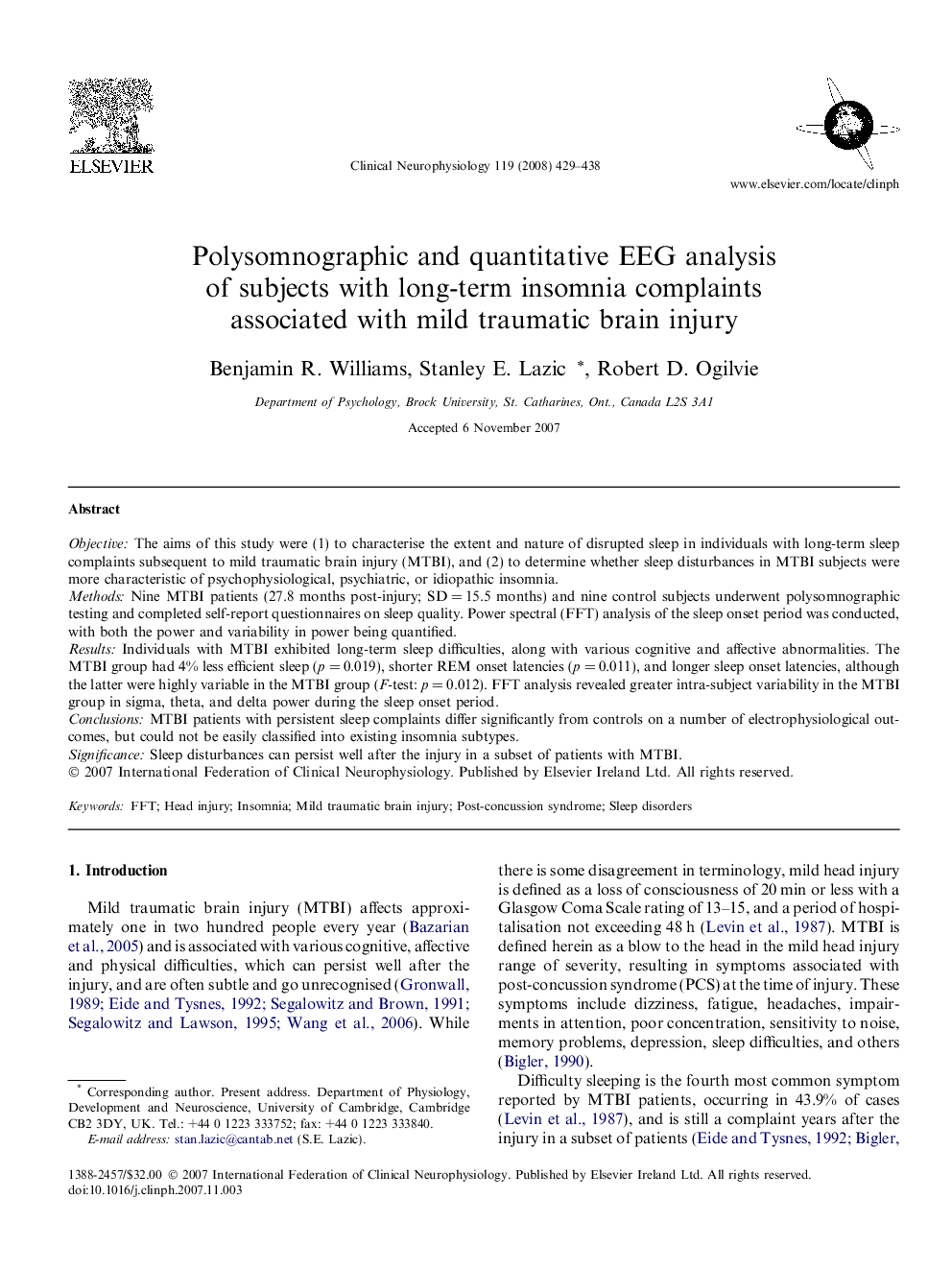| Article ID | Journal | Published Year | Pages | File Type |
|---|---|---|---|---|
| 3047883 | Clinical Neurophysiology | 2008 | 10 Pages |
ObjectiveThe aims of this study were (1) to characterise the extent and nature of disrupted sleep in individuals with long-term sleep complaints subsequent to mild traumatic brain injury (MTBI), and (2) to determine whether sleep disturbances in MTBI subjects were more characteristic of psychophysiological, psychiatric, or idiopathic insomnia.MethodsNine MTBI patients (27.8 months post-injury; SD = 15.5 months) and nine control subjects underwent polysomnographic testing and completed self-report questionnaires on sleep quality. Power spectral (FFT) analysis of the sleep onset period was conducted, with both the power and variability in power being quantified.ResultsIndividuals with MTBI exhibited long-term sleep difficulties, along with various cognitive and affective abnormalities. The MTBI group had 4% less efficient sleep (p = 0.019), shorter REM onset latencies (p = 0.011), and longer sleep onset latencies, although the latter were highly variable in the MTBI group (F-test: p = 0.012). FFT analysis revealed greater intra-subject variability in the MTBI group in sigma, theta, and delta power during the sleep onset period.ConclusionsMTBI patients with persistent sleep complaints differ significantly from controls on a number of electrophysiological outcomes, but could not be easily classified into existing insomnia subtypes.SignificanceSleep disturbances can persist well after the injury in a subset of patients with MTBI.
